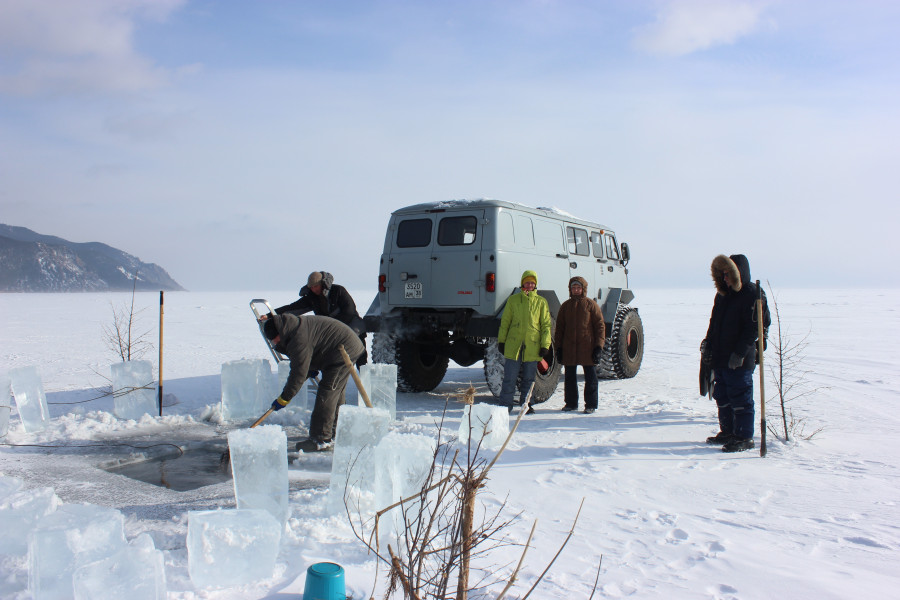The Institute has started the season of winter-spring field studies
The research expedition was carried out on February 17-18 to study the larvae of Baikal sponges and zooplankton associated with sponges
The expedition was carried out as a part of the scope specified in state assignment: No. 0279-2021-0005 “Study of state transformations in East Siberian reservoirs and channels in seasonal and long-term aspects in the context of climate change, geological environment and anthropogenic impacts” (headed by A.P. Fedotov), No. 0279-2021-0011 “Genomics of symbiosis. Study of interactions between the host and consortia of microorganisms and parasites” (headed by S.I. Belikov) and No 0279-2021-0007 “Comprehensive studies of the Lake Baikal coastal zone: long-term dynamics of communities under the influence of various environmental factors and biodiversity; causes and consequences of negative environmental processes” (headed by O.A. Timoshkin).
Goals of the expedition:
- to carry out the work aimed at studying the formation of the Baikal endemic sponges larvae at the molecular-genetic and morphological levels;
- study of the diversity of sponge-associated lower crustaceans Copepoda (Cyclopoidae, Harpacticoidae).
Tasks of the expedition:
- sampling of the Baikal sponge Baicalospongia, Lubomirskia and their larvae for subsequent molecular-genetic and morphological analysis;
- sampling of sponge-associated Copepoda (Cyclopoidae, Harpacticoidae) to ensure their subsequent species diversity.
Sampling of sponges and zooplankton was carried out by divers at depths of 3 – 26 m, in the area of Bolshiye Koty. These works were carried out to test various hypotheses related to the causes of sponge diseases at the larval stage and to the formation of larvae in same female from different males.






